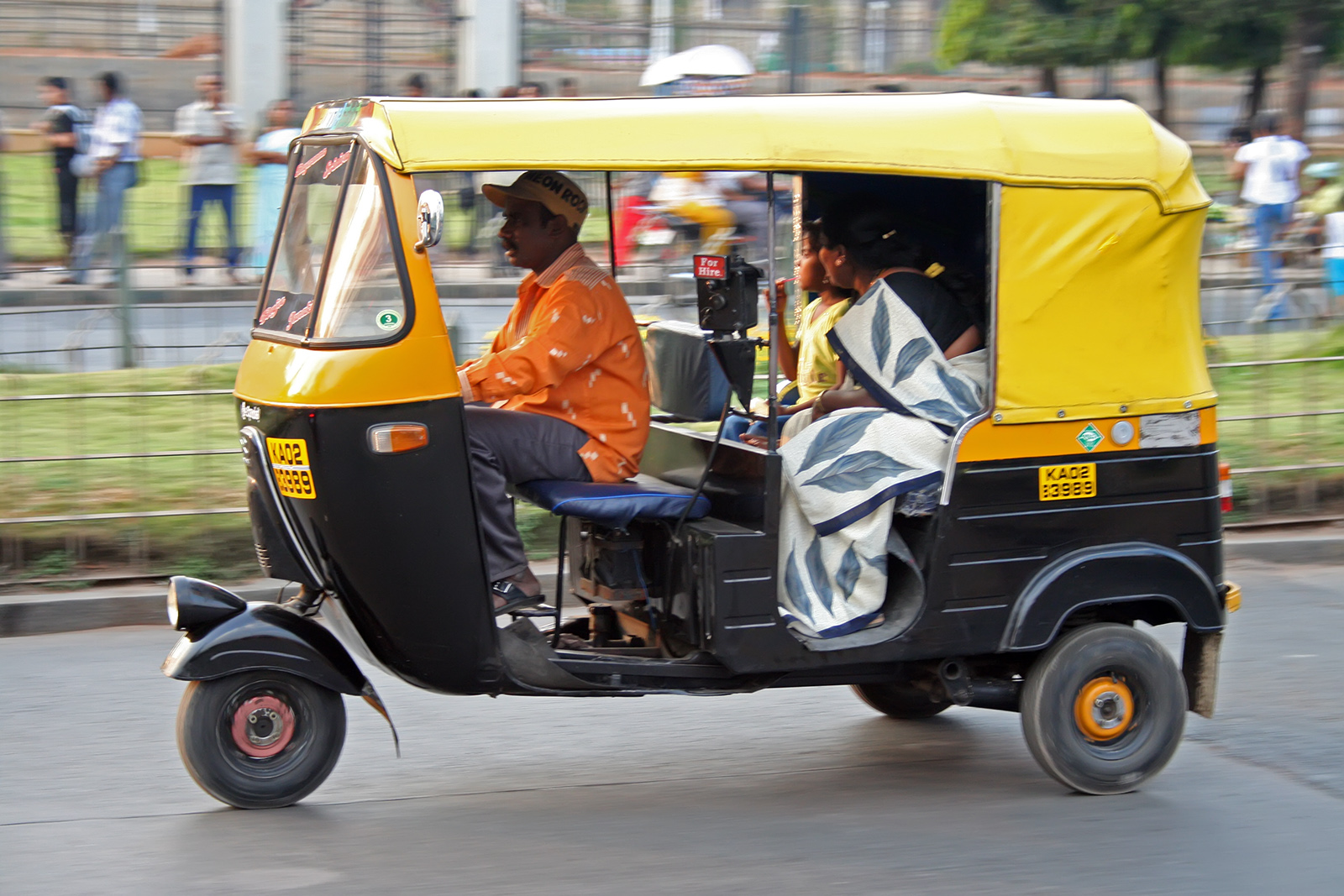There was a post in one of the Blogs I follow. This was regarding commuting between the office and residence in Gurgaon by the Blogger. Apparently, the sizzling speed of the rickshaw at 3kmph mentally transported him to some Formula 1 racing circuit. Reading the blog set off a different train of thoughts in my mind. The result is this blog.
The hand pulled rickshaws were not that common. In Ottapalam, there were two and in Mankara, none. One of them in Ottapalam belonged to my brother-in-law's father, a leading lawyer of that time. The rickshaws competed with a few Morris Minors, Fords, Ambassador land masters and a rare palanquin. The palanquin bearers used to chant 'hom, hom, hai, hai…hom, hom hai, hai' as they trotted on. It appeared to me then that the whole of the Hindi vocabulary was there in their chanting! Children travelled on the shoulders of retainers.
And in one of our rare visits to Calicut, the mode of transport within the town was the horse drawn Governor's cart. I believe the contraption is called 'Victoria' in Mumbai. You can still see a few of them in the stretch of road from the Gateway of India to the Radio Club. The starving horses are a sorrier sight than the derelict carts.
Cycle Rickshaws were quite common in Ernakulam in 1967-68 when I was in St.Alberts College. By the early seventies, they had disappeared from the roads of Kerala. They still survived in Madras City. MGR attained almost God like stature by providing rain coats to all the Rickshaw wallahs in Madras city. The national pastime of ushering in progress by changing the names of all the cities and roads the Britishers built was a few more years away in time. So Madras was Madras and not yet Chennai. Strangely, Baber, Akbar etc who were as much foreign conquerors as the British escaped the same treatment. Roads, Cities bearing their names remain untouched. On second thought, not so very strange as the Muslims in India are a significant vote bank. We did even name a road in New Delhi 'Olaf Palme' road as the guy had the distinction of being one of Rajiv Gandhi's crony. The Bengali babus chose Ho Chi Minh, Marx, Lenin etc and may be a Che Guerra or a Fidel Castro.
In the Cycle rickshaws in Kerala one could sit comfortably as if in a chair in a barber shop. The seating of the rickshaws in Hyderabad seems to have been designed by some Gynecologist to induce delivery for ladies in advanced stages of pregnancy. Your knees will be touching your chin and if you are one of the daddy longlegs, will even rise up over your head like two horns. Of course you can learn to sit in 'padmasana'
Those in Kanpur required delicate handling as they were potential sources of tetanus. Besides, the rickshawwallah, as is the custom in those parts of the country, would be wearing an overcoat which he put on during the Pooja and which would be taken off only on Holi. The overcoat itself was appropriated from the used apparels donated as relief supply by people from western countries, for the refugees from East Pakistan, during the Bangladesh liberation years. The stink would be over powering and remember you are sitting behind in close proximity. You would think that taking of this 'relic' on Holi would improve matters. No, Sir! "There is more stink trapped in the clothes under the coat than is spoken off by your philosophy. Horatio"
The rickshaws in Bihar were not much different, except that the passengers will be holding on to a well oiled 'lathi' or a muzzle loader. As the Bihari, off season peasant strains on the pedals, many a tortoise and snails will be overtaking the rickshaw. Anyway, what is the big hurry? The state has not changed a great deal from the days when King Janaka ruled over Mithila. Rickshaws have merely replaced chariots. Biharis obviously believe in the Zen dictum "It is when you are in the greatest hurry that you have to slow down". And slow down they did and how!


Great one ! An eye opener !!!
ReplyDelete